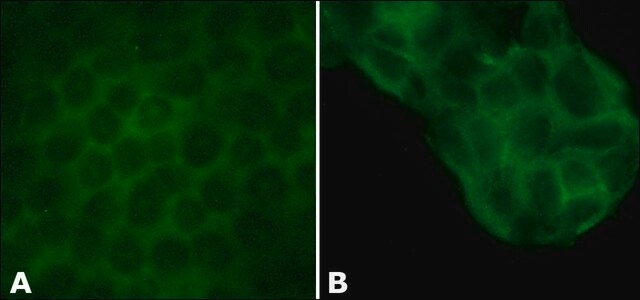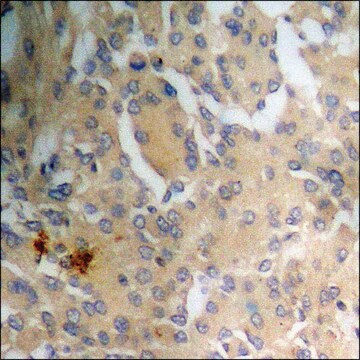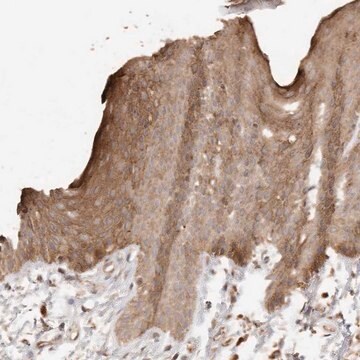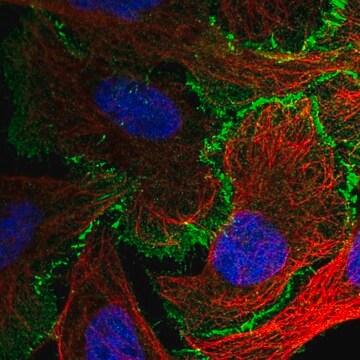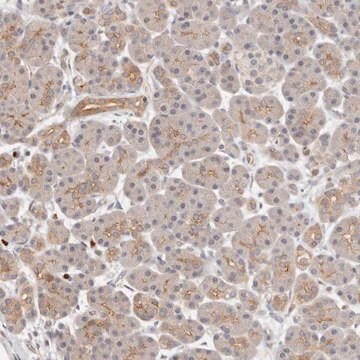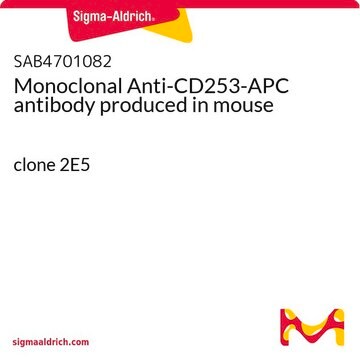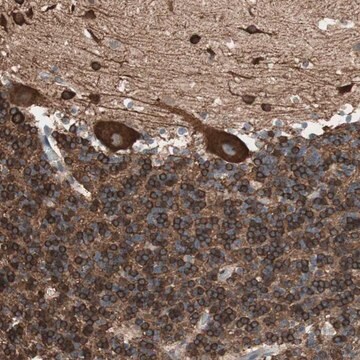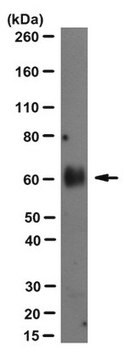A0349
Anti-l-Afadin antibody produced in rabbit

affinity isolated antibody, buffered aqueous solution
About This Item
Productos recomendados
biological source
rabbit
Quality Level
conjugate
unconjugated
antibody form
affinity isolated antibody
antibody product type
primary antibodies
clone
polyclonal
form
buffered aqueous solution
mol wt
antigen ~200 kDa
species reactivity
canine, mouse, rat, human
packaging
antibody small pack of 25 μL
enhanced validation
independent
Learn more about Antibody Enhanced Validation
technique(s)
immunohistochemistry (frozen sections): 1:1,000 using mouse liver sections.
indirect immunofluorescence: 1:500 using MDCK cells and cultured human HepG2 cells.
microarray: suitable
western blot: 1:2,000 using extract of rat brain
shipped in
dry ice
storage temp.
−20°C
target post-translational modification
unmodified
Gene Information
human ... MLLT4(4301)
mouse ... Mllt4(17356)
rat ... Mllt4(26955)
General description
Specificity
Immunogen
Application
- western blotting
- immunofluorescence experiments
- immunocytochemistry
- immunohistochemistry
Biochem/physiol Actions
Physical form
Disclaimer
¿No encuentra el producto adecuado?
Pruebe nuestro Herramienta de selección de productos.
Storage Class
10 - Combustible liquids
wgk_germany
WGK 2
flash_point_f
Not applicable
flash_point_c
Not applicable
Elija entre una de las versiones más recientes:
Certificados de análisis (COA)
¿No ve la versión correcta?
Si necesita una versión concreta, puede buscar un certificado específico por el número de lote.
¿Ya tiene este producto?
Encuentre la documentación para los productos que ha comprado recientemente en la Biblioteca de documentos.
Nuestro equipo de científicos tiene experiencia en todas las áreas de investigación: Ciencias de la vida, Ciencia de los materiales, Síntesis química, Cromatografía, Analítica y muchas otras.
Póngase en contacto con el Servicio técnico